
Painting of the French painter Jacques Louis David “Belisarius”. The size of the picture is 288 x 312 cm, canvas, oil. In the late 1770s, the main goal of the young artist Jacques Louis David was to gain access to the Academy of Arts, without which it was impossible to achieve success. For submitted to the competition picture “Belisarius” in 1781, David unanimously accepted as a member of the Royal Academy of Fine Arts.
An antique story from Marmontel’s novella about the famous Byzantine general, because of false accusation doomed to poverty and wandering, was popular in classicism painting of the second half of the 18th century. David treats the scene with a sentimental sensitivity in the manner of Joseph-Marie Vien.
The picture shows a fine strict composition and unity of color, dominated by rich red-brown tones. Belisarius is the commander of the Byzantine emperor Justinian the Great. According to some historians, he was a Slav native and was called Velichar. Beginning the service as a simple soldier of the Imperial Guard, Belisarius was first in the rank of commander during the war with the Persians, whom he forced to peace in 532.
In 533, commanding an army sent to Africa against the Vandals, Belisarius defeated them at the Battle of Trikameron, took Carthage, captured the Vandal King Helimer, and thereby put an end to the Kingdom of Vandalia. After this, he was instructed to drive out from Italy and destroy the Ostrogothic kingdom. In 534, Belisarius conquered Sicily and, having crossed over to Italy, took Naples and Rome; but the war did not end there, but dragged on for several more years. Finally, the Ostrogothic king Vitiges, persecuted by the troops of Belisarius, was captured and taken prisoner to Constantinople.
Meanwhile, the war with the Persians was resumed. The victories won by the Persian king Khozroi compelled Justinian to send Belisarius to Asia, where the commander, acting with unchanging luck, triumphantly finished this war. From Asia, Belisarius was again sent to Italy, where the Ostrogothic king Tottila inflicted severe defeats on Byzantine troops and again took possession of Rome. Belisarius, arriving in Italy, quickly corrected the state of affairs there, but was again recalled and, due to various court intrigues, for 12 years had to remain inactive. In 559, during the invasion of the Bulgarians, Belisarius was again entrusted with the command over the troops, and his actions were still successful.
Towards the end of his life, Belisarius was disgraced: his enormous estates were confiscated, and only half of the previous state was returned to him at the request of the Empress Theodora. This opal later in the beginning of the XII century served as the basis for the legend of the blindness of Belisarius and the doom of the great commander for poverty and wandering.
 Love of Paris and Helena by Jacques Louis David
Love of Paris and Helena by Jacques Louis David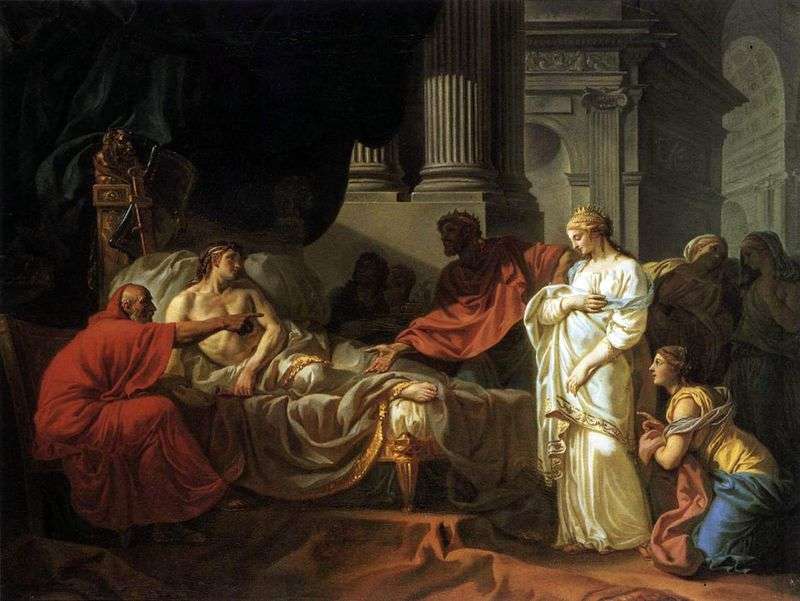 Antiochus and Stratonica by Jacques Louis David
Antiochus and Stratonica by Jacques Louis David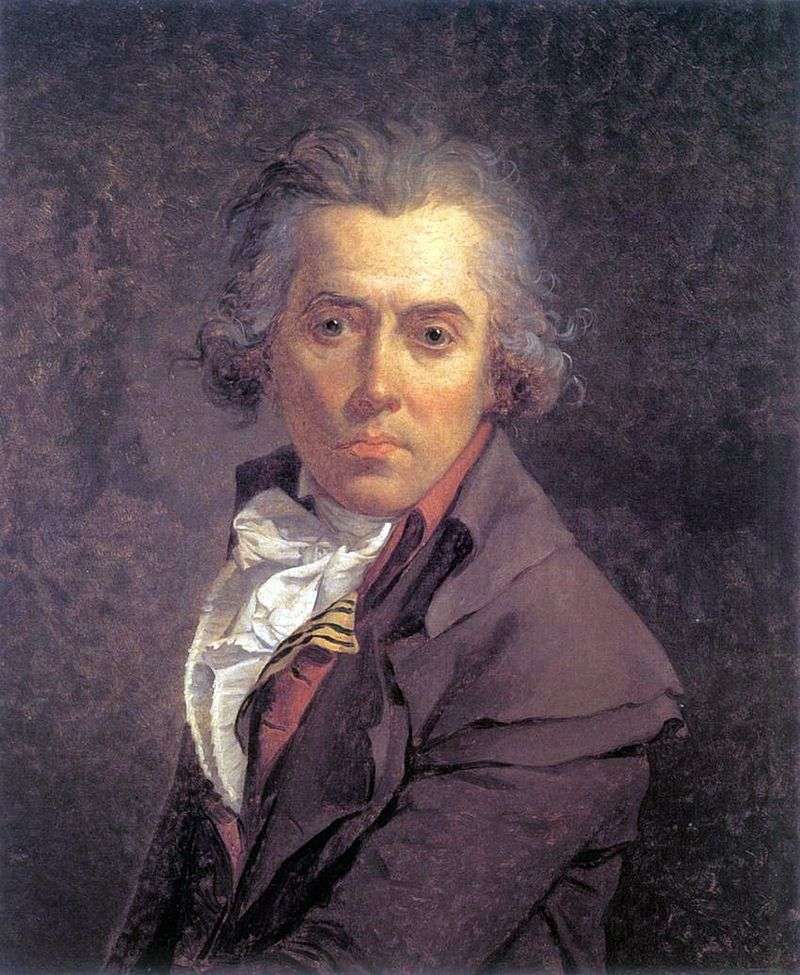 Self-Portrait by Jacques Louis David
Self-Portrait by Jacques Louis David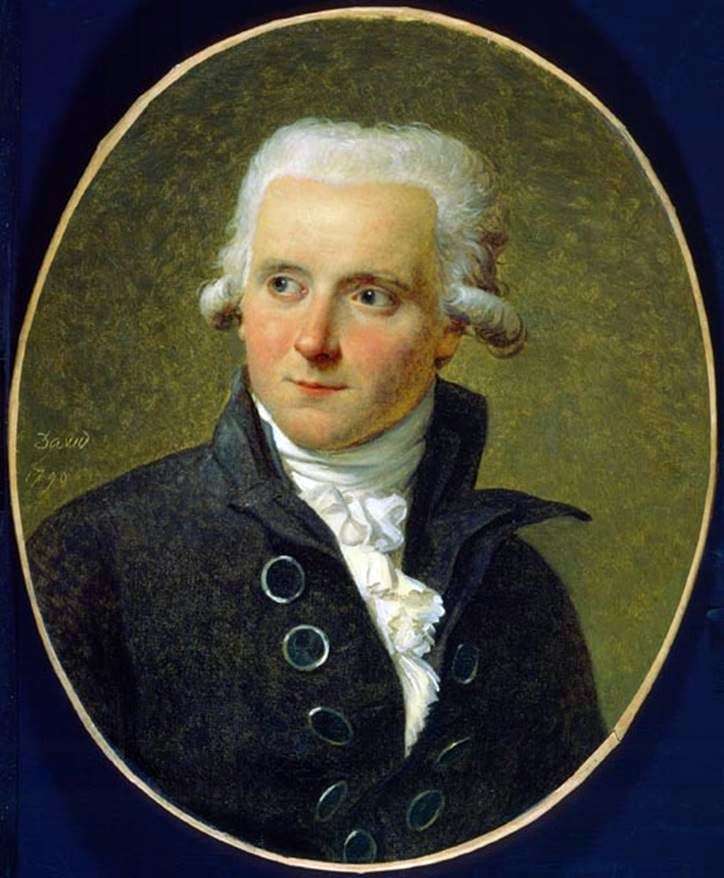 Pierre Serizia by Jacques Louis David
Pierre Serizia by Jacques Louis David Portrait of Dr. Alfons Leroy by Jacques Louis David
Portrait of Dr. Alfons Leroy by Jacques Louis David Portrait of the jailer by Jacques Louis David
Portrait of the jailer by Jacques Louis David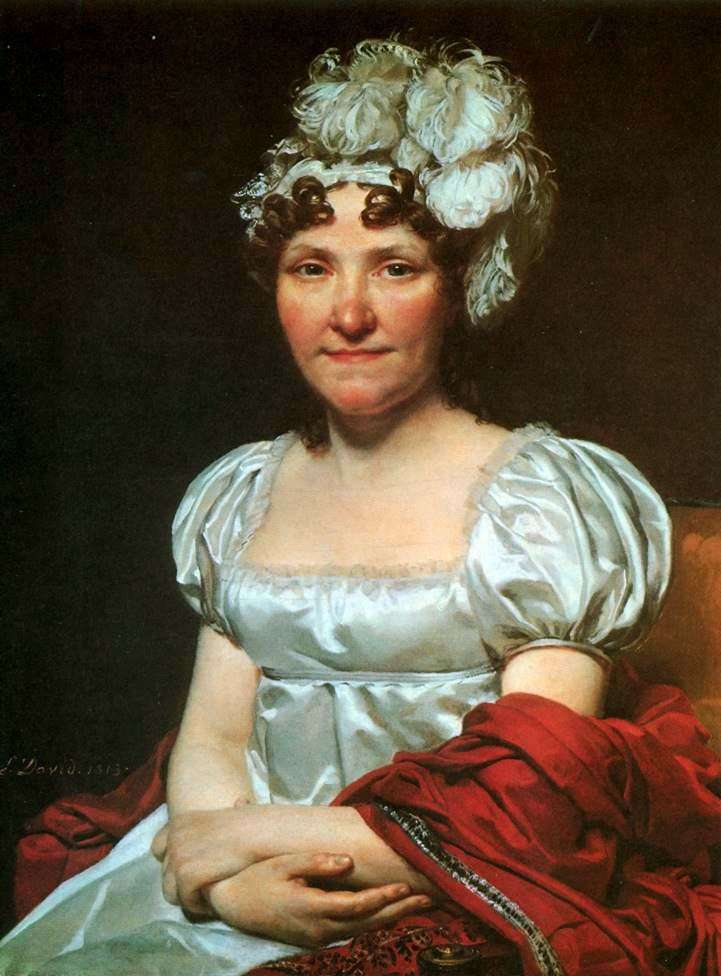 Margarita-Charlotte David – Jacques Louis David
Margarita-Charlotte David – Jacques Louis David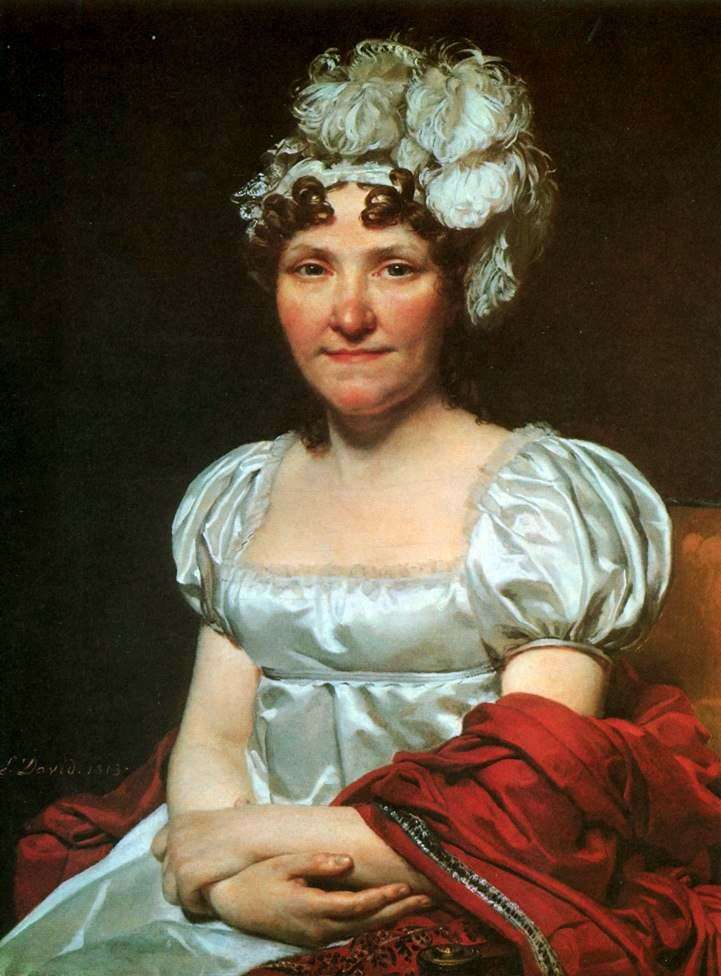 Margarita-Charlotte David by Jacques Louis David
Margarita-Charlotte David by Jacques Louis David